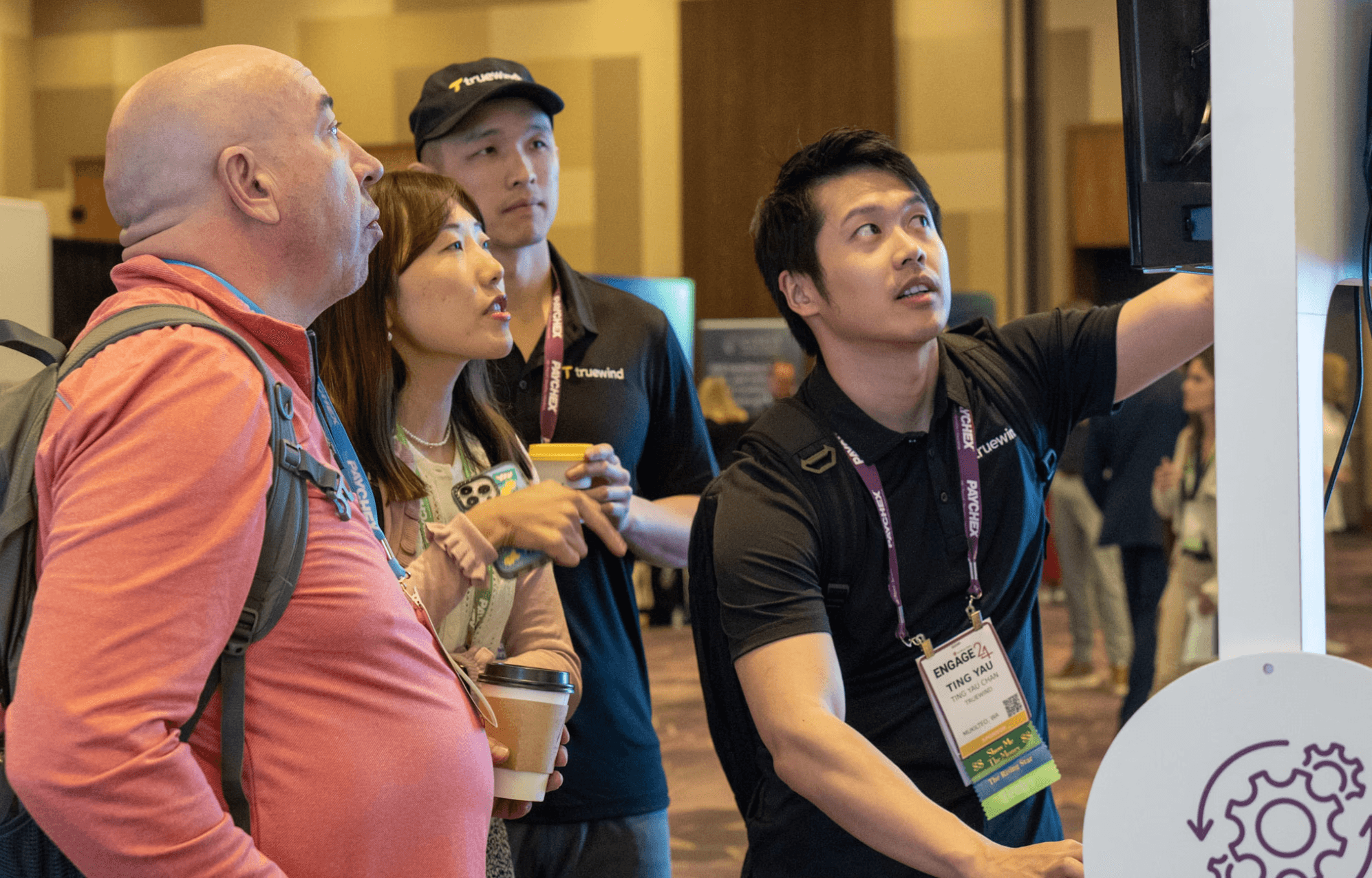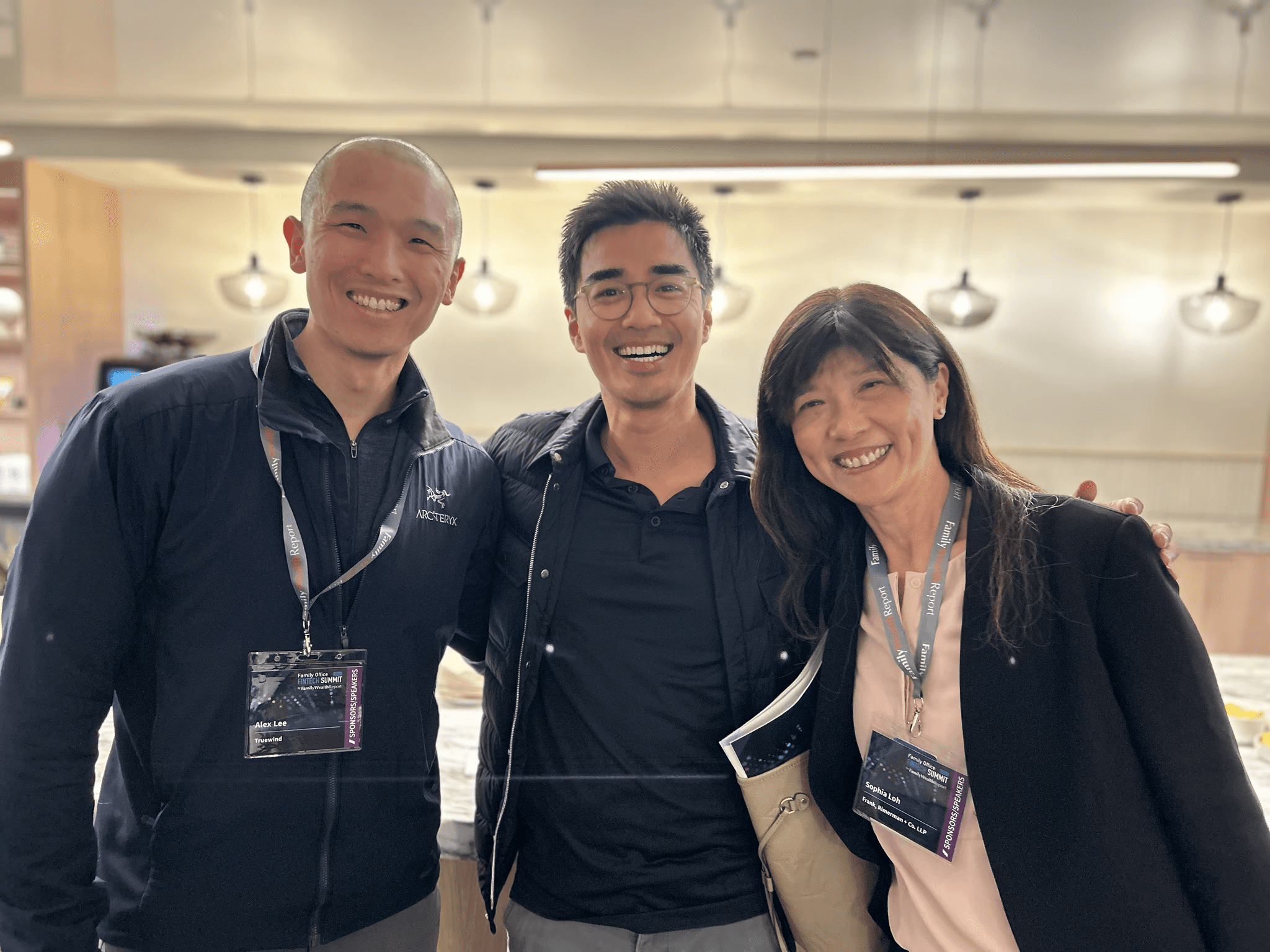Scaling New Heights 2025 Recap: Truewind’s Main Stage
Accounting
Scaling New Heights 2025 Recap: Truewind’s Main Stage

Last month, the accounting-tech world came together for Scaling New Heights 2025. This annual event is all about breaking barriers between the technology and finance. Truewind showcased how our AI-powered Digital Accountant is reshaping the profession.
Truewind's CEO and Co-founder, Alex Lee took the Main Stage speaking in front of nearly 2,000+ people about The Future of Accounting Isn't About AI, It's about You: A Vision for 2030. Watch the full keynote below.
Accounting might have been around for 7,000 years, and back then they didn't call it accounting, but they knew one thing that was important: track what comes in and what's going out. The foundations of modern accounting took shape in 1300s Venice: complex trade, boats, ships, warehouses.
Fast forward to the 1800s and 1900s the profession emerged: CPAs, chartered accountants, Ernst & Young, PWC, Deloitte - born in an era of industrialization that demanded trust, compliance, and fraud prevention.
Now to more recent history. We’re in the software era. Tools changed, interfaces changed, but the basis of accounting hasn't changed for the past 400 to 500 years.
The Medium Keeps Evolving:
Back in the 1300s: Parchment, ink, quill. You write something, you made a mistake, you scratch it out. Eventually they figured out how to bind parchment together into books.
In the 1800s - 1900s: Abacus, typewriters, filing systems. A paper trail for everything which probably added work more than it removed.
Software era: The biggest leap in technology, everything went digital. But one constant remains: the work still has to be done. We still trust accountants to do it - only now, you’re typing instead of handwriting, and you’re filing folders on a server instead of in a cabinet.
Hold that arc in mind as we move forward.
AI Isn’t New, Our Interaction With It Is
Heard of The Imitation Game? The actor plays Alan Turing, a computer physicist back in the 1950s. He helped decrypt the German communication code called Enigma, and he is the pioneer of what we know today as the computer. Even back then, he asked the question: Can machines think?
For us who have planned this space for many years, let's just say technology and AI is whatever we call the newest thing that could do something we didn't know it could do before. Like suddenly there's a tool called ChatGPT, you can type a prompt and it writes out a whole essay for you. That is the newest wave of technology and AI because we couldn't do that just a few years ago.
Over the past 70 years, the industry has pushed forward on how to figure out how to apply artificial intelligence with computers and the internet at the center of it. In 1969, we had distributed networks going through the World Wide Web, browsers, the Dot Com, and all the other innovations since then. Now, while we may look at this and think about automation, technology, all the things that it can do for us, what I'm more interested in thinking about is: What about data?
Think about the file storage system that I talked about. At one point, that was technology. And what did that unleash for us? More data, more storage of data. We talked about the work that you're doing with handwriting to typewriting, and this trend between technology and data.
What We Want AI To Do?
If we did a quick Google search on “AI in accounting”, the outcomes we’d like to think AI can give us:
Auto-classify bank and credit card transactions
Draft monthly financials and variance analyses
Read/extract data from PDFs, receipts, contracts (OCR, the OG accountant’s AI)
Deliver the holy grail: continuous, real-time close with advisory-grade insights
All of that matters. But the pattern is clear: we want AI to draft the work so we can review the work.
The Real Shift: Change the Work, Not Just the Tool
Let’s revisit how we actually work then imagine what changes next.
1. Manual tagging of transactions
If AI “does it all,” you still feel obligated to check every line so would spend just as much time doing that work. AI should make it so we only review the exceptions. How do you know the AI got the other ones right without reviewing all of them? Now you're in this virtuous cycle of not gaining anywhere.
Our view: The next wave of technology innovation should focus on how we put AI in your hands? Not just a platform that you have to live with, but how do we let you interact with it?
You should train the AI like you train a new staff accountant so it learns your firm’s rules, your client nuances, your SOPs.
2. Drilling down for insights
Right now, the senior accountants open QuickBooks, click a cell, drill down, find the vendors within it, discuss with the controller, and prepare for the client meeting.
Our view: This behavior, or this interaction, is something that you should have with AI as well. AI has the details of the business, but there should be a Socratic dialogue approach to finding those insights.
3. Living in Excel
Click cell, delete number, cut column and repeat. It’s all in a standard operating procedure somewhere.
Our view: Instead of executing those rules by hand, explain the context and the steps to an AI and let it execute for you. Accountants already write SOPs, this is something AI can automate and execute for you.
There will be some automation, but more importantly, what we think a lot about is how are we changing the work? When you change the work, you generate more data for yourself and your clients. More data means more insight and more insight drives real economic value.
Why We’re Building For Accountants
We genuinely believe accountants are the unsung heroes of modern business: foundations of trust, stewards of integrity, quietly brilliant and essential to every company. At the heart of all that, it’s because you care. Because of that, we don’t see jobs disappearing. We see a Cambrian explosion in demand for your work, as long as the tools are there to service what you need.


